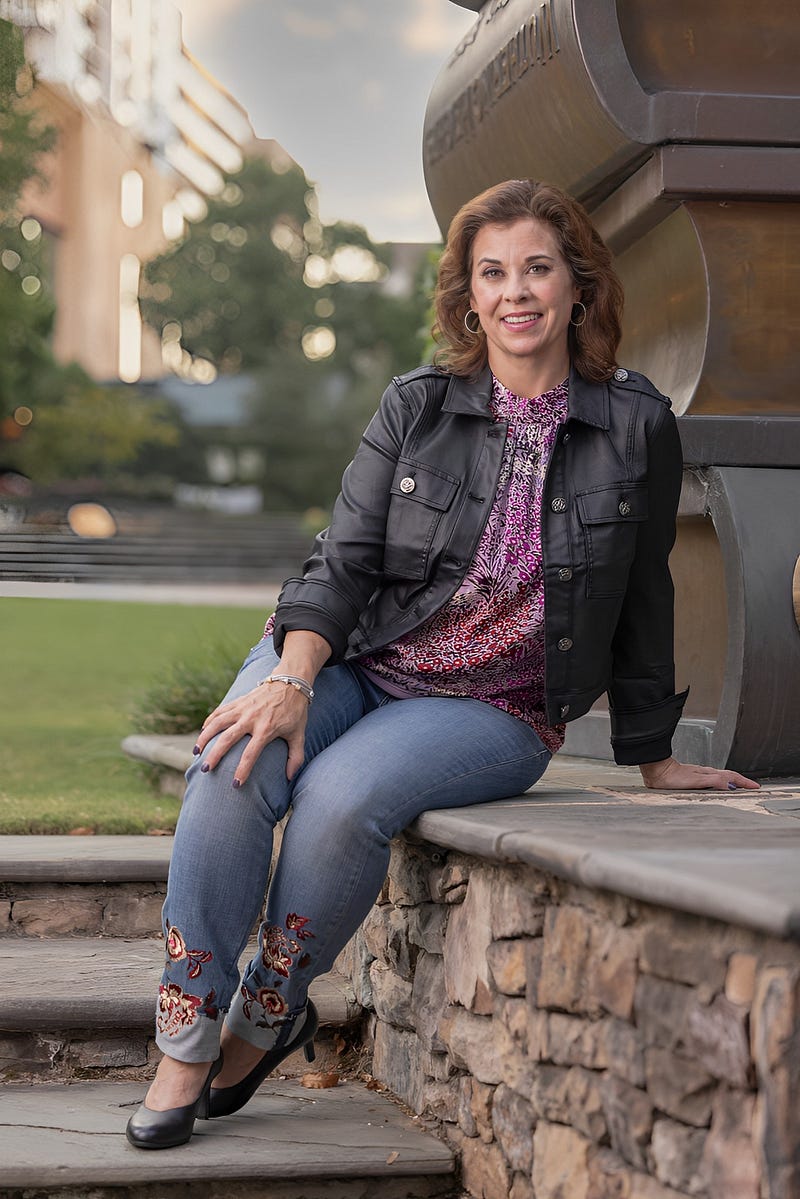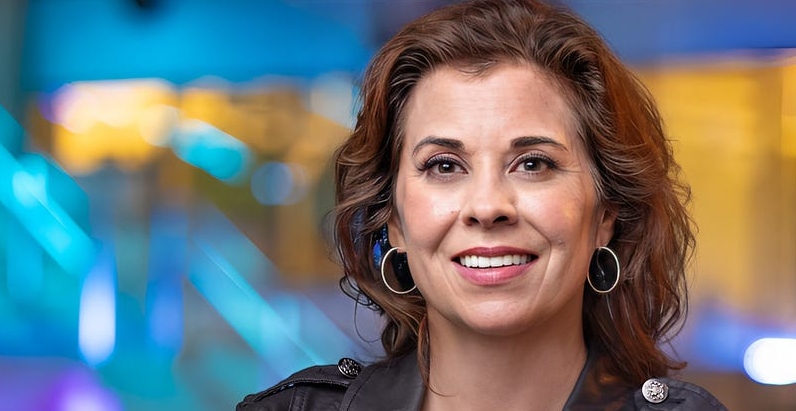Listen to understand — this requires focus and putting my own thoughts and ideas aside while that individual is talking.
The number one leadership initiative in any organization today is improved coaching. Coaching empowers employees, empowerment drives engagement, and engagement drives performance. At its core, coaching is about transformation. Leading distributed teams requires transforming how we coach and changing our play calls and playbooks to get things done. As a part of our interview series called “Moving From Command & Control to Coaching & Collaboration; How Leaders and Managers Can Become Better Coaches,” we had the pleasure to interview Betsy Kauffman.
Betsy is a globally recognized Organizational Agility Coach with more than 20 years of experience working in Fortune 500 companies as well as the Founder, CEO, and Coach at Cross Impact, speaker, and mentor in the Charlotte Women in Business Mentoring Program. In addition to a Bachelor of Business Administration from James Madison University, she spent 20+ years working in corporate America trying to figure out how to balance motherhood, working full time, and climbing the corporate ladder in a competitive tech environment where women weren’t supportive of each other. Over the years, Betsy learned to find her voice and use it to positively support and influence colleagues, clients, and various companies.
Thank you for joining us to explore a critical inflection point in how we define leadership. Our readers would like to get to know you better. What was a defining moment that shaped who you are as a leader?
Not sure there was a defining moment but after listening to Dan Sullivan’s audible about his book, Who not How, it really landed with me that true leaders find the right “who’s” based on what we are trying to accomplish and allow them to figure out the how because they are probably more equipped to do the work. Now when I have a problem or a need — my first thought is Who is the best person to do this and build a team of strong Whos’.
John C. Maxwell is credited with saying, “A leader is someone who knows the way, goes the way, and shows the way.” How do you embody that quote as a leader?
I always try to paint the vision of where we are going and what’s expected of my team and then try to embody and live into that vision. I also try to keep our company values of collaboration, transparency, simplicity, trust, and balance front and center and as a guidepost in how we operate. When something is “off” for me or the company it usually means we are compromising on our values which I think is also key for me as a leader and how I lead the team and support our clients.
How do you define the differences between a leader as a manager and a leader as a coach?
I believe as a leader, you need to wear many different hats to be successful and effective — manager, coach, decision maker, strategist, visionary, partner, peer, etc. Leader as a manager is making sure things are getting done and providing the environment, tools, and resources to ensure the team can successfully execute. I think of it more as the strategic meets tactical arm of a leader and focusing on the output and goals of the team and company.
When a leader puts their coach hat on they are focused more on the growth of each individual on their team. They work with them to help them see alternatives, reflect on mistakes and find room for improvement. The leader as coach also helps them think through problems on their own and build awareness, empower choice and encourage positive change. A coach drives the individual to the next level of effectiveness. The best leaders are able to successfully shift and wear the right hat given the situation at that moment in time.
We started our conversation by noting that improved coaching is the number one leadership initiative in any organization today. What are some essential skills and competencies that leaders must have now to be better coaches?
For leaders to be good coaches — they need to be able to listen. In the coaching world we call this level 2 listening which is really listening from a standpoint of listening to understand what the receiver is saying instead of listening to respond — which is typically the case or level 1 listening. Another great skill is being able to ask powerful questions. Powerful questions are such a great tool to help team members to think through and make choices which are reflective of their own personal goals. Another skill leaders as coaches should possess is knowing how to empower individuals to make decisions, reflect on their choices, and problem solve on their own.
We’re all familiar with the adage, “You catch more flies with honey than with vinegar.” How are you inspiring — rather than mandating — leaders to invest in upskilling and reskilling? I am a huge advocate of encouraging everyone to invest in themselves in order to keep growing, learning, and leaning into what excites them. We have a couple of offerings at Cross Impact which we use internally to support our team members and also offer to our clients. The Collaborative is an annual program for female leaders providing personal and professional development for this demographic to help pull themselves up the ladder. Our program really focuses on values, creating balance, and gives additional tools to help navigate their careers and be better leaders. Our other offering is our 1:1 Leadership Coaching programs which truly are a gift by giving leaders a 360 view into how they are perceived as a leader and actionable focus on areas of improvement to continue to support them to develop into a better leader.

Let’s get more specific. How do you coach someone to do their best work? How can leaders coach for peak performance in our current context? What are your “Top 5 Ways That Leaders and Managers Can Be Effective Coaches?”
- Possess emotional intelligence — which includes self management, self awareness, and social awareness. One of my team members was not performing at their normal performance so when we had a 1:1, I brought my concerns to their attention and asked them if there was something going on which I needed to be aware of and where they needed support. They let me know their mother was having some health issues and they were trying to find a place for her to get the care she needed. Once I understood the situation, we decided she would take a few weeks off so she could focus on helping their mother and I would work with the team to cover her absence.
- Empower employees — whenever I am looking for my team to make a decision or implement a project or idea, instead of telling them the specifics in the what or how, I share my intent which includes the vision, what constitutes success, and any constraints of what I am looking for and allow for them to figure out the rest.
- Listen to understand — this requires focus and putting my own thoughts and ideas aside while that individual is talking.
- Value honesty and transparency — Sometimes as leaders we don’t want to hear exactly what is going on — especially if it’s not favorable. However, as a leader, that is one of our key roles in supporting our employees. How you react and respond when an employee is being open, honest, and transparent can make or break your relationship with the team or team member and impact performance.
- Embody and possess the same values and behaviors you expect of your team members. If you tell your team members to take a vacation and not be logged in or available, then you as the leader need to do the same. Employees take their cue from their leaders so show up and behave as you would expect them to do.
We’re leading and coaching in increasingly diverse organizations. And one aspect of workforce diversity on the rise is generational diversity. What advice would you offer about how to effectively coach a multi-generational workforce? And how do you activate the collective potential of a multi-generational workforce?
- I absolutely love how workplaces have become multi-generational — it brings such an interesting dynamic and culture. To effectively coach this type of workforce is to listen and understand what each of these generations need to be supported at work as well as what motivates them. In order to activate that collective potential, it’s important to acknowledge the various needs and also make them known to the team. That way there is a shared understanding across the team of what’s important to each team member so they all have a greater understanding and appreciation for each other. I also believe the leader needs to put some guardrails up to create the right environment and be transparent into why these guardrails are in place to support meeting the needs of everyone. For example, our teams’ core working hours are 9–3 p.m. CT so the expectation is you will be available for calls, meetings, and collaboration. Awareness, transparency, and honesty are critical to get this group of diverse individuals working well together.
What are two steps every leader can take to demonstrate a higher level of emotional intelligence?
- The first step is empathy — a leader needs to understand the emotions, needs, and concerns of their individual team members without personally taking them on.
- Second step is understanding team dynamics — which is being able to pick up on emotional cues, recognizing the power dynamics in a group or organization, and feeling comfortable navigating those cues and emotions.
What are the most important words for leaders to use now?
- Focus
- Balance
- Empower
- Transparent
- Collaborate
What’s your favorite “Life Lesson Quote,” and why does it mean so much to you?
“Life isn’t about finding yourself. Life is about creating yourself” by George Bernard Shaw. I love this quote and have had it on my refrigerator for over 20 years because I truly believe you need to create and own the life you want to lead both personally and professionally.
What’s the best way for readers to connect with you and to stay current on what you’re discovering?
- LinkedIn: https://www.linkedin.com/in/betsykauffman/
- Our website — https://www.crossimpactcoaching.com/
- The Collaborative: https://apply.crossimpactcollaborative.com/
Thank you for giving us the opportunity to experience a leadership master at work. We wish you continued success and good health!


